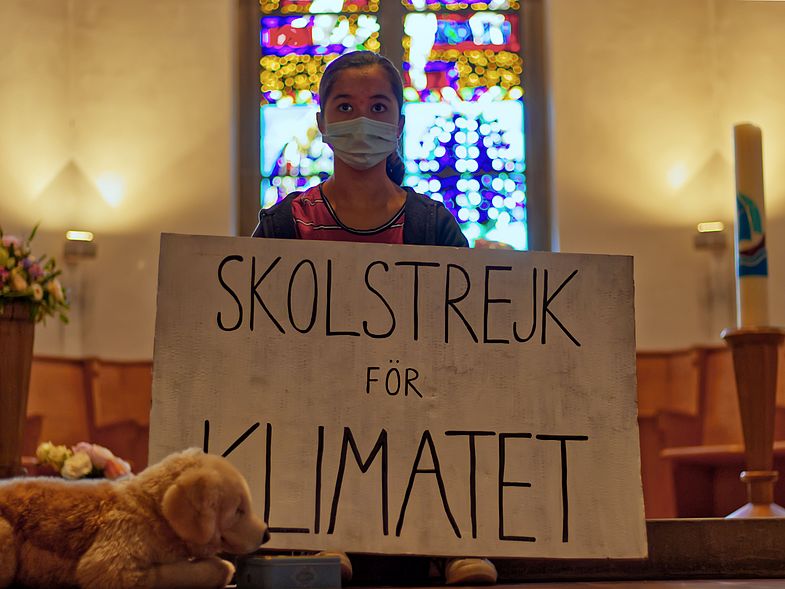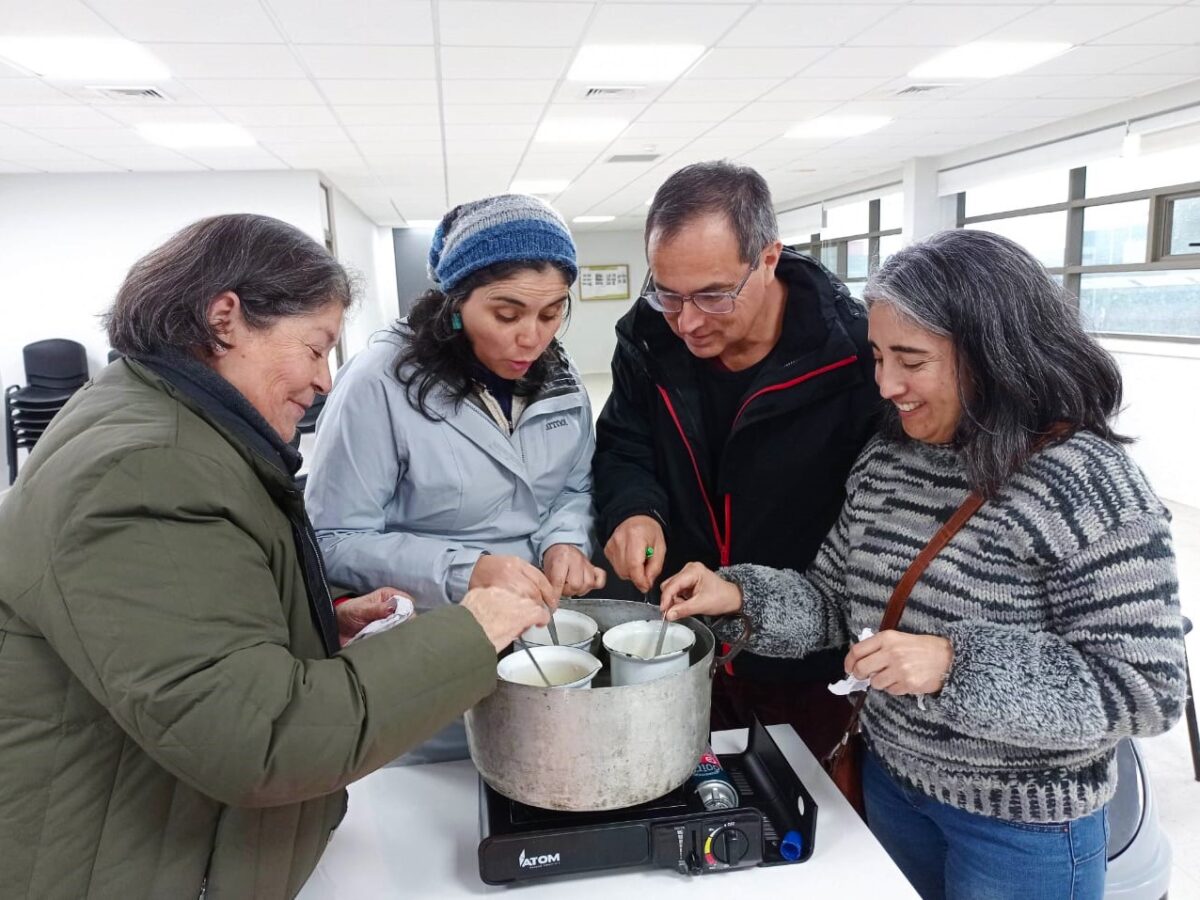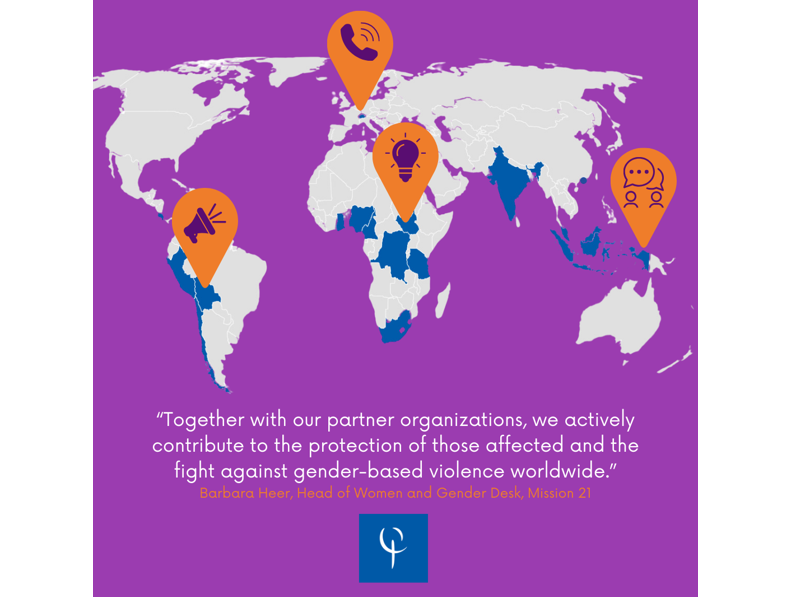Why did you choose the topic of climate justice?
Choosing a theme is always a process for us. Immediately after a theater production, we in the management team ask ourselves what we could do next. The climate theme had been on our radar for a while, but we never really dared to do it. This time, we felt it was really overdue to bring it up now. The church does have to say something on issues like this. We are a political theater and feel committed to the preservation of creation. That is also explicitly stated in our principles.
Isn't there beginning to be a weariness with this climate issue?
No, on the contrary! Before the pandemic, the topic was big, that's true, but this year there hasn't been much in the way of public discussion, especially in the cultural sector. There may be some basic awareness, but otherwise I see little happening directly. By the way, this non-biblical topic is reflected in the reservations - we've never had so many at the same time before.
On the flyer, the word "Greta" stands out big and red. How important is she in your piece?
The first topic was "Resistance". We had seen that 2021 will be the 100th year of Sophie Scholl's birth. But we had already done a play on Sophie Scholl. So we thought about where there is resistance today. Since we thought that this applied to the climate strike movement, we invited climate strikers and discussed the topic with them.
And the step to Greta?
For a play, you have to get specific at some point, and that's when this story of Greta suddenly emerged. Greta is an identification figure and is also incredibly polarizing. Gradually it became clearer and clearer: this is perfect for a play.
But it doesn't even appear in the title of the piece.
Yes, actually, it does: it says "enough talking" - Greta Thunberg is someone who doesn't talk. She has mutism, she can't talk to strangers.
She did, after all, address the UN General Assembly.
In the fight for her cause, the commitment to the climate, she manages to overcome her mutism. Still, she is a quiet person. The media then turned her into something else.
What fascinates you yourself about Greta Thunberg?
I think she is an extremely inspiring person. She has understood many things that the vast majority of people have not yet understood. The fact that she sees things in black and white and names them in this way is perhaps also an opportunity in this crisis, because there is no "yes, but" in this matter. Either we do something or we do nothing.
And you are doing something now. Can you change the world with theater?
I don't know. I wouldn't hang it too high. Of course, we want to make people think and, if possible, touch them emotionally. Maybe they will then pause a bit and think, "Yes, maybe I really can't just go on like this forever." And precisely, the topic must finally be put back on the agenda.
What can you communicate better in church with theater than with preaching?
I can simply say why we do church theater. You can integrate very many and different people with a project like this. We are not only a children's and youth theater, but a cross-generational one. But also otherwise: Everyone who wants to do something can contribute something. Talents are needed on every level: in designing the flyers, in building the scenery and theater technology, in playing, of course, or in the supporting program. In a project like this, you can bring together all kinds of people.
In recent months, there have been repeated accusations from the political arena that the church is making too much of a direct political appearance. There has been talk of taking tax money away from the church. How do you assess these attacks?
The church tax is one question and whether the church should or may be political is another.The church has always been political, and if it is no longer political, then for me it no longer has a raison d'être. If you look at the biblical texts, especially the gospels, you see that they are highly political. If you as a church build on this text, you cannot say that you are not political! We are not a feel-good club where you only go to feel good about yourself. The church must consistently take the side of the poor and the weak, and that is political per se.
The production is subtitled "A demo for the climate" - is it also going out onto the streets?
Maybe this much: Our goal is to take the theater off the stage a bit, too, i.e. to go into the auditorium as well. But I won't reveal exactly how we do that here, of course.
Interview: Johannes Künzler, rehearsal photo: Lorenz Jost/zVg
"Enough talk, stand up now! - A Demo for the Climate" will premiere on Sunday, October 31 at 5 p.m. at the Kirchgemeindehaus Johannes in Bern. Further performances each Friday through Sunday until November 14. Starting times and further information can be found in the Flyer.
► Here you can make reservations for individual tickets and for entire groups.
The Johannes theater ensemble supports Mission 21 projects in Nigeria. Part of the proceeds from this production goes to Mission 21's work for climate protection in Nigeria. Learn more






